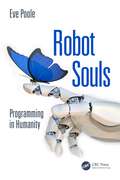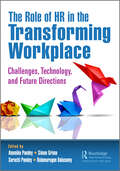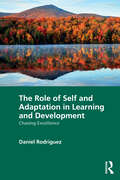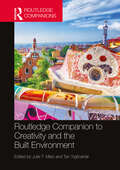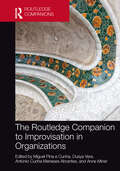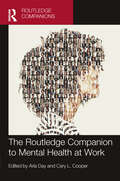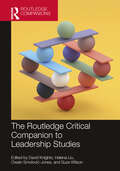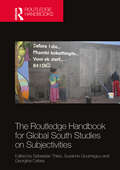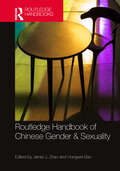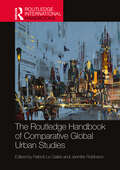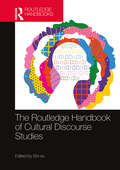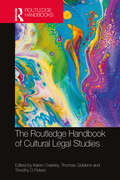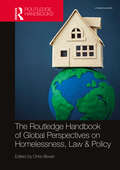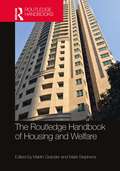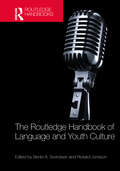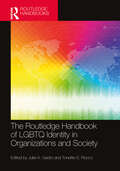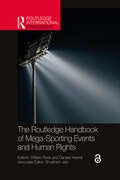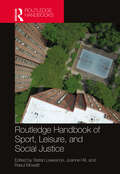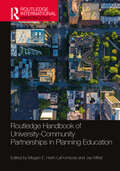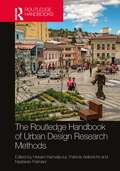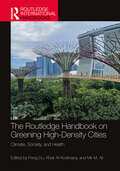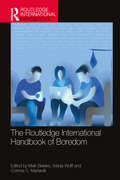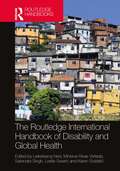- Table View
- List View
Robot Souls: Programming in Humanity
by Eve PooleTwo of the biggest design problems in Artificial Intelligence are how to build robots that behave in line with human values and how to stop them ever going rogue. One under-explored solution to these alignment and control problems might be to examine how these are already addressed in the design of humans. Looking closely at the human blueprint, it contains a suite of capacities that are so clumsy they have generally been kept away from AI. It was assumed that robots with features like emotions and intuition, that made mistakes and looked for meaning and purpose, would not work as well as robots without this kind of code. But on considering why all these irrational properties are there, it seems that they emerge from the source code of soul. Because it is actually this ‘junk’ code that makes us human and promotes the kind of reciprocal altruism that keeps humanity alive and thriving. Robot Souls looks at developments in AI and reviews the emergence of ideas of consciousness and the soul. It places our ‘junk code’ in this context and argues that it is time to foreground that code, and to use it to look again at how we are programming AI.
The Role of HR in the Transforming Workplace: Challenges, Technology, and Future Directions
by Anamika Pandey Simon Grima Suruchi Pandey Balamurugan BalusamyChanging technology and the growing demand for workforce intelligence have ushered in a new era of human resource (HR) transformation and have compelled HR professionals to continually ideate, innovate, and adapt. This book covers the changing role of HR in the transformation of workplaces to be successful globally. With challenges come new opportunities for HR to completely transform. Currently, technology is considered to be an extension of human beings rather than an external component, which makes people less socially connected. Physical, psychological, and financial well-being in this machine-led world is driving the agenda of HR. Individuals with complex business requirements and long-term goals must coexist with the gig economy, flexible workplaces, and changing priorities. This book precisely addresses these issues. More innovations are needed to create solutions for an ever-growing digital world. This book, therefore, explains how the role of HR executives must be to understand how emerging technologies are affecting company culture, strategy, operational plans, and the hiring of future talent. Crafting a career path for knowledge workers with challenging roles with fulfilling job aspects remains a puzzle. Keeping people engaged and happier is one of the major challenges that HR professionals experience. Different generations in the workplace with differing styles of learning, communication, and dynamic expectations add to these challenges. HR functions must keep evolving to overcome these challenges to transform the workplace, and it is essential to recognize how HR can act as a strategic business advisor through the effective use of technology. This book provides practical advice in these areas. In addition, this book helps professionals, researchers, and practitioners understand the way advanced technology and automation are influencing HR practices and processes in the new normal. The topics are designed to capture the most advanced technology-based HR practices for workplace transformations in industry and academia. This book assembles contributions from experts in HR planning, human capital management, business analytics, people analytics, predictive analysis, and automation from across the world, contributing their knowledge to identify the different attributes of the above-mentioned field of study. The book’s chapters are designed and organized pragmatically to enhance the reader’s experience and interest, reflecting upon a few untouched segments in the HR domain such as HR data privacy, data security, diversity, and inclusion using explainable AI (XAI), blockchain, and metaverse.
The Role of Self and Adaptation in Learning and Development: Chasing Excellence
by Daniel RodriguezThis book introduces readers to Psychoadaptation—a general model of change that stresses the importance of experiencing disequilibrium in the development of a healthy Self—and applies it to a range of examples across the academic, sport, and health domains. Built upon his studies of human development and learning, Daniel Rodriguez offers an overview of a model of change with a specific focus on the development of Self and conceptions of Self. The author begins by focusing on academic topics such as conducting research, teaching, and being a student, before highlighting examples from sport and health. With a clear and engaging tone, each chapter highlights how the theory behind Psychoadaptation can be applied across a variety of contexts and in the modern world. The result is a solid balance of scientific theory and practical application that readers can relate to their own circumstances and research. Offering a unique conceptualization to development, learning, and behavior change, this is a useful resource for students and scholars within these areas, as well as clinicians working in the fields of health and sport. It will also benefit individuals looking to embark upon their own journeys to Self-development.
Routledge Companion to Creativity and the Built Environment (Routledge International Handbooks)
by Julie T. Miao Tan YigitcanlarThis book crtitically examines the reciprocal relationship between creativity and the built environment and features leading voices from across the world in a debate on originating, learning, modifying, and plagiarizing creativities within the built environment.The Companion includes contributions from architecture, design, planning, construction, real estate, economics, urban studies, geography, sociology, and public policies. Contributors review the current field and proposes new conceptual frameworks, research methodologies, and directions for research, policy, and practice. Chapters are organised into five sections, each drawing on cross-disciplinary insights and debates: Section I connects creativity, productivity, and economic growth and examines how our built environment stimulates or intimidates human imaginations. Section II addresses how hard environments are fabricated with social, cultural, and institutional meanings, and how these evolve in different times and settings. Section III discusses activities that directly and indirectly shape the material development of a built environment, its environmental sustainability, space utility, and place identity. Section IV illustrates how technologies and innovations are used in building and strengthening an intelligent, real-time, responsive urban agenda. Section V examines governance opportunities and challenges at the interface between creativity and built environment. An important resource for scholars and students in the fields of urban planning and development, urban studies, environmental sustainability, human geography, sociology, and public policy.
The Routledge Companion to Improvisation in Organizations (Routledge Companions in Business and Management)
by Cunha, Miguel Pina e Dusya Vera Abrantes, António Cunha Meneses Anne MinerThis innovative volume provides a comprehensive overview of improvisation as a pervasive organizational process, essential in ever-changing business environments. Exploring theories of organizational action as well as contemporary challenges, it highlights improvisation’s rich potential in theory building and practice. The value and relevance of improvisational capabilities and processes in organizations are more apparent than ever: the global pandemic has forced organizations to reinvent themselves and to adapt to dramatic change on a massive scale. This surge in improvised activity starkly illustrates how the capability to improvise is key to organizational resilience: organizations that are able to improvise effectively are better prepared to bounce back and even thrive. From the latest thinking on improvisation in organizations to future avenues for research, this volume demonstrates the rich potential for both theory building and practice and provides a valuable resource for researchers and advanced students in organizational strategy, entrepreneurship, product development, information systems, disaster management, and HRM.
The Routledge Companion to Mental Health at Work (Routledge Companions in Business and Management)
by Arla Day Cary L. CooperThe issue of mental health at work has become a hot topic in both the popular media and academic writings. Although job stress and mental ill-health are associated with negative outcomes for individuals, teams, and organizations, there has been some suggestion that changing the work environment and creating healthy workplaces can improve worker health. Much of the current works in the general of health is fractured, coming from a variety of disciplines and perspectives without an organizing framework to help guide research and practice in the area. Having this individualized, compartmentalized perspective constrains our ability to fully understand the scope of the issue, the key factors in supporting or detracting from one’s mental health, and interventions focusing on mental health at work. Given the importance of understanding mental health at work and the current lack of coverage on workplace mental health, there is a need for a book to provide a holistic overview of the issue targeting the environmental, individual, and group influences of mental health and well-being, as well as the impact on individuals and workplaces. This handbook provides a conceptual framework for examining these issues. Each chapter offers an in-depth examination of the key facets of mental health at work, focusing both on the seminal and current literature on the topic and practical suggestions for best practices for organizations. With contributions from leading experts, authors address the state-of-the-art research and integrate current events that are shaping the way we work and our wellbeing at work. This edited collection will be of interest to researchers, academics, policymakers, and advanced students in the fields of human resource management, organizational psychology, and management.
The Routledge Critical Companion to Leadership Studies (ISSN)
by David Knights Helena Liu Owain Smolović-Jones Suze WilsonThe Routledge Critical Companion to Leadership Studies offers a rich and insightful overview of critical leadership studies for students, teachers, researchers, and practitioners. The volume draws together 35 chapters from 56 authors who represent the vibrant diversity of the critical leadership community. It includes chapters from emerging and preeminent scholars who share an interest in directing leadership theorizing, development and practice toward the aims of liberation, justice, and equity.The Companion is organized into six themes: (1) philosophical perspectives on leadership; (2) processes, practices, and power dynamics in leadership; (3) diversity and leadership; (4) leadership education and development; (5) lessons from the dark side of leadership; and (6) reimagining leadership and leadership studies.The book has been curated to serve as a "go to" resource for undergraduate and postgraduate students, academic staff, and researchers seeking to understand the current state of play on a given topic, as well as inspiration for how they might contribute to its development. Each chapter provides a comprehensive yet succinct review of contemporary literature and offers the reader avenues for future research. Leadership practitioners will also find provocative ideas among these pages to help them interrogate and transform the ways they lead.
The Routledge Handbook for Global South Studies on Subjectivities (Transdisciplinary Souths)
by Sebastian Thies Susanne Goumegou Georgina CebeyThe Routledge Handbook for Global South Studies on Subjectivities provides a series of exemplary studies conjoining perspectives from Asian, African, and Latin American Studies on subjectivity in the Global South as a central category of social and cultural analysis. The contestation of the Northern myth of the autonomous subject—the dispositive that contests subject formation in the South by describing it as fragmented, incomplete, delayed or simply deviant, has been a cornerstone of theory production from the South over the years.This volume’s contributions offer an interdisciplinary and transarea dialogue, reframing issues of selfhood and alterity, of personhood, of the human, of the commons and contesting the North’s presumption in determining what kind of subjectivities abide by its norms, whose voices are heard, who is recognised as a subject, and, by extension, whose lives matter. In the context of the shifting dynamics of today’s manifold crises, they raise questions regarding how subjectivities act on or resist such forms of contestation, contingency, and indeterminacy.A major contribution to the growing body of scholarship on the Global South, this handbook will be an essential resource for students, scholars, researchers and instructors in literature, media and culture studies, sociology, anthropology, philosophy, law, politics, visual arts and art history.
Routledge Handbook of Chinese Gender & Sexuality
by Jamie J. Zhao and Hongwei BaoThis Handbook offers a rich survey of topics concerning historical, modern and contemporary Chinese genders and sexualities.Exploring gender and sexuality as key dimensions of China’s modernisation and globalisation, this Handbook effectively situates Chinese gender and sexuality in transnational and transcultural contexts. It also spotlights nonnormative practices and emancipatory potentials within mainstream, heterosexual-dominated and patriarchally structured settings. It serves as a definitive study, research and resource guide for emerging gender and sexuality issues in the Chinese-speaking world. This Handbook covers interdisciplinary methodologies, perspectives and topics, including: History Literature Art Fashion Migration Translation Sex and desire Film and television Digital media Star and fan cultures Fantasies and lives of women and LGBTQ+ groups Social movements Transnational feminist and queer politics Paying acute attention to nonnormative genders and sexualities and emphasising the intersectionality of gender, sexuality, nationality, ethnicity and class, this Handbook offers an essential, field-defining text to Chinese gender and sexuality studies.
The Routledge Handbook of Comparative Global Urban Studies (Routledge International Handbooks)
by Patrick Le Galès Jennifer RobinsonThe Routledge Handbook of Comparative Global Urban Studies is a timely intervention into the field of global urban studies, coming as comparison is being more widely used as a method for global urban studies, and as a number of methodological experiments and comparative research projects are being brought to fruition. It consolidates and takes forward an emerging field within urban studies and makes a positive and constructive intervention into a lively arena of current debate in urban theory. Comparative urbanism injects a welcome sense of methodological rigor and a commitment to careful evaluation of claims across different contexts, which will enhance current debates in the field. Drawing together more than 50 international scholars and practitioners, this book offers an overview of key ideas and practices in the field and extends current thinking and practice. The book is primarily intended for scholars and graduate students for whom it will provide an invaluable and up-to-date guide to current thinking across the range of disciplines which converge in the study of urbanism, including geography, sociology, political studies, planning, and urban studies.
The Routledge Handbook of Cultural Discourse Studies (Routledge Handbooks in Linguistics)
by Shi-XuIn response to the cultural challenges in society and scholarship, this handbook presents the conceptions, assumptions, principles, methods, topics and issues in the studies of cultural forms of human communication—cultural discourses—by experts from around the world.A culturalist programme in communication studies (CS), cultural discourse studies (CDS), as represented in this handbook, is a new current of thought in human and social science and a form of academic activism, but above all, it is a fresh paradigm of research committed to enhancing cultural harmony and prosperity on the one hand and facilitating intellectual plurality and innovation on the other hand. This handbook is the first of its kind; it is concerned with the identities of, and interactions between, the world’s diverse cultural communities through locally-grounded and globally-minded, culturally conscious and critical approaches to their communicative practice. Contributors apply such insights, precepts and techniques, not merely to discover and describe past and present communication, but also to design and guide future communication.This handbook is ideal for scholars and students interested in cultural aspects and issues of communication/discourse, as well as researchers of other fields looking to apply cultural discourse methods to their own projects.
The Routledge Handbook of Cultural Legal Studies
by Karen Crawley Thomas Giddens Timothy D PetersThis handbook provides a comprehensive introduction to the cutting-edge field of cultural legal studies.Cultural legal studies is at the forefront of the legal discipline, questioning not only doctrine or social context, but how the concerns of legality are distributed and encountered through a range of material forms. Growing out of the interdisciplinary turn in critical legal studies and jurisprudence that took place in the latter quarter of the 20th century, cultural legal studies exists at the intersection of a range of traditional disciplinary areas: legal studies, cultural studies, literary studies, jurisprudence, media studies, critical theory, history, and philosophy. It is an area of study that is characterised by an expanded or open-ended conception of what ‘counts’ as a legal source, and that is concerned with questions of authority, legitimacy, and interpretation across a wide range of cultural artefacts. Including a mixture of established and new authors in the area, this handbook brings together a complex set of perspectives that are representative of the current field, but which also address its methods, assumptions, limitations, and possible futures.Establishing the significance of the cultural for understanding law, as well as its importance as a potential site for justice, community, and sociality in the world today, this handbook is a key reference point both for those working in the cultural legal context – in legal theory, law and literature, law and film/television, law and aesthetics, cultural studies, and the humanities generally – as well as others interested in the interactions between authority, culture, and meaning.
The Routledge Handbook of Global Perspectives on Homelessness, Law & Policy
by Chris BevanThis handbook provides a comprehensive global survey and assessment of the law and policy relating to homelessness prevention. Homelessness is regarded internationally as one of the most pressing issues facing humanity and one of the greatest social challenges of our times. This has been further amplified as a result of the Covid-19 pandemic. Across the globe, there is an enormous divergence in both experiences of and responses to homelessness from governments and state actors. This handbook examines how different jurisdictions from across all five continents of the world have encountered, framed and responded to homelessness. Written by expert scholars and leaders in their field, the book engages in a multidisciplinary and comparative analysis of homelessness as an issue of acute social concern. Understandings of homelessness are geographically, culturally and historically situated, making analysis of each jurisdiction’s approach by a national expert deeply insightful. The collection examines legal and extra-legal policy interventions targeted at reducing or preventing homelessness from across the globe. Drawing on diverse perspectives, differing cultures and welfare regimes, it thus constitutes a timely evaluation of current approaches to homelessness internationally. This book will appeal to students and scholars of homelessness, sociology, social policy, anthropology, and urban sociology, as well as international and national policymakers.
The Routledge Handbook of Housing and Welfare
by Martin Grander Mark StephensThis handbook takes on one of the most pressing issues of today’s society – the question of housing. It is a cutting-edge edited volume about the disputed interrelationship between housing and the wider welfare state. Although housing scholars generally agree that housing should be regarded as part of such a wider welfare system, it has proven hard to pinpoint and operationalize its position within it. Moreover, the relationship became considerably more complex as a result of the period of intense globalization and the integration of national housing finance systems into world finance markets. Furthermore, welfare systems reflect economic as well as social models and these, too, have changed as countries have responded to globalization, and traditional ideological frameworks have become less distinct. Thus, there is a need to redefine the connection between housing and welfare in light of changes in both welfare and housing systems. By investigating the current situation and historical development of housing provision and welfare distribution in different contexts worldwide, this book aims to contribute to an expanded understanding of housing and welfare. The book brings together 25 international housing researchers covering 15 countries worldwide. With such a global approach, the book aims to provide an updated empirical picture and analysis of different housing systems and their connection to the welfare regime in different national contexts. The book moves beyond the usual focus on affordable housing provision in the context of well-developed welfare regimes and includes countries from the global south, incorporating regions where it is debatable whether there are welfare systems present at all. Thus, the book aims to provide the reader with an insight into the large differences in housing provision in international contexts with large differences regarding how the welfare state is comprised. From these insights, we reflect on whether regime approaches continue to provide a suitable theoretical framework for understanding the relationship between housing and the wider welfare state. This handbook is essential reading for researchers, students, policymakers, and other professionals in the fields of housing studies, welfare studies, economics, urban studies, social work, social and public policy, and sociology.
The Routledge Handbook of Language and Youth Culture (Routledge Handbooks in Applied Linguistics)
by Bente A. Svendsen and Rickard JonssonThe Routledge Handbook of Language and Youth Culture offers the first essential grounding of critical youth studies within sociolinguistic research. Young people are often seen to be at the frontline of linguistic creativity and pioneering communicative technologies. Their linguistic practices are considered a primary means of exploring linguistic change as well as the role of language in social life, such as how language and identity, ideology and power intersect. Bringing together leading and cutting-edge perspectives from thought leaders across the globe, this handbook: • addresses how young people’s cultural practices, as well as forces like class, gender, ethnicity and race, influence language • considers emotions, affect, age and ageism, materiality, embodiment and the political youth, as well as processes of unmooring language and place • critically reflects on our understandings of terms such as ‘language’, ‘youth’ and ‘culture’, drawing on insights from youth studies to help contextualise age within power dynamics • features examples from a wide range of linguistic contexts such as social media and the classroom, as well as expressions such as graffiti, gestures and different musical genres including grime and hip-hop. Providing important insights into how young people think, feel, act, and communicate in the complexity of a polarised world, The Routledge Handbook of Language and Youth Culture is an invaluable resource for advanced students and researchers in disciplines including sociolinguistics, linguistic anthropology, multilingualism, youth studies and sociology.
The Routledge Handbook of LGBTQ Identity in Organizations and Society (Routledge International Handbooks)
by Tonette S. Rocco Julie A. GedroSexuality, gender, gender identity, and gender expression are fluid constructs, and the ways in which identity development intersects with organizations and exists in society are complex. The book is comprised of a range of multi-disciplinary and globally inspired perspectives representing leading-edge scholarship by authors from over a dozen countries on a range of issues and contexts regarding LGBTQ identity and experience. It is intended for a wide readership: those who are in LGBTQ-related academic fields; those who want to broaden their coursework by offering supplemental readings that center the perspectives of LGBTQ identities; and those who want to acquire knowledge and education on the subject of LGBTQ identity. There are 36 chapters written by scholars in fields such as social work, law, queer studies, business, human resource management and development, entrepreneurship, criminal justice, economics, marketing, religion, architecture, sport, theater, psychology, human ecology, and adult education. The chapters can be read in sequence, and the book can also be used as a reference work for which educators, practitioners, and non-academics can identify and select particular chapters that inform areas of inquiry.
The Routledge Handbook of Mega-Sporting Events and Human Rights (Routledge International Handbooks)
by William Rook Daniela Heerdt Shubham JainThe Routledge Handbook of Mega-Sporting Events and Human Rights is the first book to explore in depth the topic of mega-sporting events (MSEs) and human rights, offering accounts of adverse human rights impacts linked to MSEs while considering the potential for promoting human rights in and through the framework of these events. Drawing on the contributions of an international group of leading researchers, practitioners and advocates, the book introduces key concepts in human rights and considers how they relate to ethical, social, managerial and governance issues in contemporary MSEs, from inclusion and welfare to corruption and sustainability. It examines the role of key stakeholders in the delivery of MSEs, including organising committees, sport governing bodies, governments, athletes, sponsors and broadcasters, as well as the role of activists and advocates, and presents historical and contemporary case studies of human rights as an active issue in MSEs. The book provides new perspectives on human rights as a lens for understanding modern sport and as a guiding principle for responsible sport that protects the interests of individuals and communities, as well as offering guidance on best practice. It is essential reading for all advanced students, researchers, practitioners, policymakers and stakeholders with an interest in organisation and delivery of MSEs, as well as general sport management, sport policy, sport governance, the ethics of sport, event management, political science, development studies, ethical business or the significance of sport in wider society.
The Routledge Handbook of Mega-Sporting Events and Human Rights (Routledge International Handbooks)
by William Rook Daniela Heerdt Shubham JainThe Routledge Handbook of Mega-Sporting Events and Human Rights is the first book to explore in depth the topic of mega-sporting events (MSEs) and human rights, offering accounts of adverse human rights impacts linked to MSEs while considering the potential for promoting human rights in and through the framework of these events.Drawing on the contributions of an international group of leading researchers, practitioners and advocates, the book introduces key concepts in human rights and considers how they relate to ethical, social, managerial and governance issues in contemporary MSEs, from inclusion and welfare to corruption and sustainability. It examines the role of key stakeholders in the delivery of MSEs, including organising committees, sport governing bodies, governments, athletes, sponsors and broadcasters, as well as the role of activists and advocates, and presents historical and contemporary case studies of human rights as an active issue in MSEs. The book provides new perspectives on human rights as a lens for understanding modern sport and as a guiding principle for responsible sport that protects the interests of individuals and communities, as well as offering guidance on best practice.It is essential reading for all advanced students, researchers, practitioners, policymakers and stakeholders with an interest in organisation and delivery of MSEs, as well as general sport management, sport policy, sport governance, the ethics of sport, event management, political science, development studies, ethical business or the significance of sport in wider society.
Routledge Handbook of Sport, Leisure, and Social Justice (Routledge Critical Perspectives on Equality and Social Justice in Sport and Leisure)
by Stefan Lawrence Joanne Hill Rasul MowattThis is the first book to explore in breadth and in depth the complex intersections between sport, leisure, and social justice.This book examines the relations of power that produce social inequalities and considers how sport and leisure spaces can perpetuate those relations, or act as sites of resistance, and makes a powerful call for an activist scholarship in sport and leisure studies. Presenting original theoretical and empirical work by leading international researchers and practitioners in sport and leisure, this book addresses the central social issues that lie at the heart of critical social science – including racism, sexism, homophobia, transphobia, ableism, religious persecution, socio-economic deprivation, and the climate crisis – and asks how these issues are expressed or mediated in the context of sport and leisure practices. Covering an incredibly diverse range of topics and cases – including sex testing in sport; sport for refugees; pedagogical practices in physical education; community sport development; events and human rights; and athlete activism – this book also surveys the history of sport and social justice research, as well as outlining theoretical and methodological foundations for this field of enquiry.The Routledge Handbook of Sport, Leisure and Social Justice is an indispensable resource for any advanced student, researcher, policymaker, practitioner, or activist with an interest in the sociology, culture, politics, history, development, governance, media and marketing, and business and management of sport and leisure.
Routledge Handbook of University-Community Partnerships in Planning Education (Routledge International Handbooks)
by Heim LaFrombois, Megan E. Jay MittalThis handbook explores two guiding questions – how can university-community partnerships in planning education work, and how can they be transformative? University-community partnerships – often referred to as service-learning or community-engaged teaching and learning – are traditionally based on a collaborative relationship between an academic partner and a community-based partner, in which students from the academic partner work within the community on a project. Transformational approaches to university-community partnerships are approaches that develop and sustain mutually beneficial collaborations where knowledge is co-created and new ways of knowing and doing are discovered. This edited volume examines a variety of university-community partnerships in planning education, from a number of different perspectives, with a focus on transformative models. The authors explore broader theoretical issues, including topics relating to pedagogy, planning theory, and curriculum; along with more practical topics relating to best practices, logistics, institutional support, outcome measures, and the various forms these partnerships can take – all through an array of case studies. The authors, which include academics, professional practitioners, academic practitioners, and students, bring an incredible depth and breadth of knowledge and experience from across the globe – Australia, Canada, Chile, Europe (including Germany, Spain, Slovakia, and Sweden), India, Jamaica, South Korea, and the United States.
The Routledge Handbook of Urban Design Research Methods
by Hesam Kamalipour Patricia Aelbrecht Nastaran PeimaniAs an evolving and contested field, urban design has been made, unmade, and remade at the intersections of multiple disciplines and professions. It is now a decisive moment for urban design to reflect on its rigour and relevance. This handbook is an attempt to seize this moment for urban design to further develop its theoretical and methodological knowledge base and engage with the question of "what urban design can be" with a primary focus on its research. This handbook includes contributions from both established and emerging scholars across the global North and global South to provide a more field-specific entry point by introducing a range of topics and lines of inquiry and discussing how they can be explored with a focus on the related research designs and methods. The specific aim, scope, and structure of this handbook are appealing to a range of audiences interested and/or involved in shaping places and public spaces. What makes this book quite distinctive from conventional handbooks on research methods is the way it has been structured in relation to some key research topics and questions in the field of urban design regarding the issues of agency, affordance, place, informality, and performance. In addition to the introduction chapter, this handbook includes 80 contributors and 52 chapters organised into five parts. The commissioned chapters showcase a wide range of topics, research designs, and methods with references to relevant scholarly works on the related topics and methods.
The Routledge Handbook on Greening High-Density Cities: Climate, Society and Health (Routledge International Handbooks)
by Kheir Al-Kodmany Peng Du Mir M. AliThis new handbook provides a platform to bring together multidisciplinary researchers focusing on greening high-density agglomerations from three perspectives: climate change, social implications, and people’s health. Written by leading scholars and experts, the chapters aim to summarize the “state-of-the-art” and produce a reference book for policymakers, practitioners, academics, and researchers to study, design, and build high-density cities by integrating green spaces. The topics covered in the book include (but are not limited to) Urban Heat Island, Green Space and Carbon Sequestration, Green Space and Social Equity, Green Space and Public Health, Biophilic Cities, Urban Agriculture, Vertical Farms, Urban Farming Technologies, Nature and Biodiversity, Nature and Health, Biophilic Design, Green Infrastructure, Urban Revitalization, Post-Covid Cities, Smart and Resilient Cities, Tall Buildings, and Sustainable Vertical Cities.
Routledge Handbook on Men, Masculinities and Organizations: Theories, Practices and Futures of Organizing (Routledge International Handbooks)
by Jeff Hearn Kadri Aavik David L. Collinson Anika ThymThis Handbook provides new theoretical and empirical insights into men, men’s practices and masculinities across many kinds of organizations and forms of organizing. Most mainstream studies of organizations, leadership and management do not seem to notice they are often talking a lot about men and masculinities. The Handbook challenges this general tendency to avoid gendering men by bringing together a range of theoretical and methodological approaches that: engage with not only formal organizations, such as businesses and state organizations, but also processes of organizing within and beyond organizations; address emergent and future issues on men, masculinities and organizations, such as tech masculinities, men’s emotions, sexualities and violences, animal advocacy and environmental issues, and men and masculinities in pandemics. Targeted at scholars, policymakers, practitioners and students interested in links between men, masculinities, organizations and organizing, this landmark Handbook is an invaluable resource for those working in and beyond such fi elds as gender studies, organization, leadership and management studies, political science, sociology, social and public policy, and social movement studies.
The Routledge International Handbook of Boredom (Routledge International Handbooks)
by Maik Bieleke Wanja Wolff Corinna S. MartarelliThis comprehensive text is a unique handbook dedicated to research on boredom. The book brings together leading contributors from across three continents and numerous fields to provide an interdisciplinary exploration of boredom, its theoretical underpinnings, its experiential properties, and the applied contexts in which it occurs.Boredom is often viewed as a mental state with little utility, though recent research suggests that it can be a powerful motivator of human behavior that shapes our actions in many ways. The book examines boredom from a range of perspectives and is comprised of three parts. Part I delves into the theoretical approaches to boredom, presenting methods for its measurement, explaining when and why boredom occurs, and scrutinizing the impact it has on our behavior. Part II focuses on the psychological and neural properties of boredom and its associations with a multitude of mental and interpersonal processes, such as self-control, mind-wandering, flow, and aggression. Part III presents boredom in practical contexts like school and work, and sheds light on its role for health-related behaviors, psychosocial well-being, and aesthetic experiences. The book concludes by summarizing the state of boredom research, identifying promising areas for future research, and providing directions for how research on boredom can be advanced. As the authoritative book on boredom, this handbook is an essential resource for students and researchers of psychology, sociology, education, sport science, and computer science.
The Routledge International Handbook of Disability and Global Health (Routledge International Handbooks)
by Leslie Swartz Karen Soldatić Lieketseng Ned Minerva Rivas Velarde Satendra SinghThis handbook will raise awareness about the importance of health and well-being of people with disabilities in the context of the global development agenda: Leaving No-one Behind.There has been a growing discussion on how people with disabilities should be included in the global health landscape. An estimated one billion people have some form of disability, 80% of whom live in low- and middle-income settings. People with disabilities are more likely to be poor, with restricted access to health and social services, education, rehabilitation and employment. Despite this, people with disabilities are often overlooked in global health and development efforts. Furthermore, the COVID-19 pandemic has shown that unless systematically planned for and included in policies and programmes, people with disabilities remain at an increased risk of being adversely affected in times of humanitarian crisis and emergency disasters.Divided into eight sections: Disability and Health Frameworks Health Justice, Rights and Bioethics Gendering Disability Health Disability and Global Mental Health Disability and Access to Healthcare, Including Workforce Development Crises and Health Technology and Digital Health Disability, Ageing and Dementia Care This handbook covers the full range of topics pertaining to disability and global health including inclusive health; access to rehabilitation; global mental health and disability; medical training and disability; community based inclusive development for improving health and rehabilitation; maternal health and sexual reproduction; preventive care and health promotion for people with disabilities; health, disability and indigenous knowledges; bioethics and human rights; data protection; and health in the global south.It will be of interest to all scholars, students and professionals working in the fields of disability studies, health studies, nursing, medicine, allied health, development studies and sociology.
